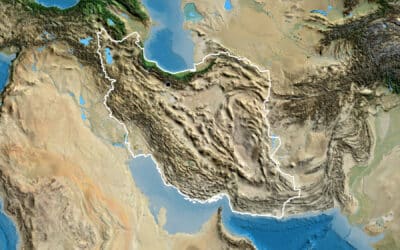Time is the most valuable resource owned by individuals. Indeed, the time available to an individual, being by essence limited, is an extremely scarce resource. One could argue that progresses in medicine contribute to increase the average lifespan, but it cannot be expended indefinitely. Time flies at the same speed for everyone. Time spent is gone forever and additional time cannot be borrowed or exchanged for another commodity. The physical and cognitive abilities of individuals also evolve over time, which means that time must be used carefully to ensure the completion of the important tasks that individuals seek to achieve over the course of their lifetime. What relationships can be drawn between time, the importance of private property and ownership in modern human societies, and individual freedom?
Let us begin with some characteristics of the development of civilization, as discussed by Ayn Rand in her book Philosophy: Who Needs It? Initially, human occupation was to fulfill basic needs and individuals spent all-day satisfying physical needs with little time left for any other task. Time was the price to be paid in advance for survival. With the development of agriculture, the ability to plant seeds and harvest only months later provided humans with more comfort to ensure their survival on a longer timeframe. But two conditions had to be respected.
The first one is to save enough of a harvest to feed the community until the next harvest, and the second one is to save enough seeds to plant the next harvest. Agriculture brings together three important concepts; time, saving, and production.
It quickly became apparent that any undertaking above the level of hand-to-mouth existence requires savings. Saving buys time which is used to conceptualize long-term developments. This is the next step to a more advanced level of civilization in which individuals learn skills and trade them for resources. This leads to a division of labor where individuals specialize in the production of some goods and trade them for other goods by direct barter, developing more experience and better skills. The productivity is increased and time, used more efficiently, brings better returns. With an access to various commodities, it becomes possible to trade perishable goods for commodities that can be kept longer, and which can be traded for food whenever needed. The time range which was once limited to the time perishable items can be conserved has been pushed farther.
When the economy becomes more complex, trade practices become more elaborate and require new tools. Firstly, on a large scale, trade cannot be done only by barter. One needs a commodity that can be used and trusted by many. This is where money comes into play. Money is not only a tool of exchange, but it is a tool of saving which permits delayed consumption and buys time for future production and developments. Money is the tool humans need to have a long-range control over their life. To fulfill this role, money must be imperishable, rare, homogenous, easily stored, not subject to large fluctuation of value, and always in demand among those one wants to trade with.
The second tool is the establishment of rules to define ownership. This was already needed when two individuals wanted to exchange goods between each other by barter, but it becomes paramount within a large complex economy when individuals trade with other individuals they are not familiar with. The establishment of rules to define ownership and private property is also required for the safe storage of commodities and their accumulation over time which can only occur within a secure environment. The economist Murray Rothbard insisted that lives depend on livelihoods and livelihoods depend on property. Property is necessary for life itself. Ayn Rand wrote, “The right to life is the source of all rights and the right to property is their only implementation. Without property rights, no other rights are possible. Since man must sustain his life by his own effort, the man who has no right to the product of his effort has no means to sustain his life.”
Unfortunately, authorities started to criticize property rights, conflating them with other void concepts such as neo-liberalism. For instance, this viewpoint states that property rights should be considered as a secondary natural right superseded by the needs and wants of others. Should this opinion be legally enforced, it would make property rights meaningless because human needs and scarcity of resources are permanent realities.
Destructions of property is also downplayed by some who argue that attacking property does not constitute violence against individuals. Property owners know that property damage does harm to individuals, and suggesting otherwise is intellectually despicable. It is not simply buildings or premises that can be burnt to the ground, but sometimes decades of effort and investment reduced to ash. As economist Ludwig von Mises put it, “It is in the nature of every application of violence that it tends toward a transgression of the limit within which it is tolerated and viewed as legitimate.” It is impossible to keep a collapse of the rule of law constrained to “just property damage.” By excluding the destruction of private property from the meaning of “violence,” one tries to smuggle a Marxist presumption into the modern language to normalize the attacks against property, and ultimately put private ownership in a more precarious situation. This would jeopardize the possibility to accumulate wealth for long-term development and irremediably deprive individuals from their ability to control their lives. If individuals cannot project themselves into the future, they cannot plan their future and cannot start building it. Under such grim circumstances, individuals would have no other choice than to surrender control over their life choices.
Attempts by intellectuals to undermine property rights are numerous. For instance, in 1970, the French philosopher Henri Lefebvre crafted the “suburban ideology” to label single-family owners as individualist, ultraliberal, and reactionary. Indeed, for collectivists, thinking about housing in terms of individual houses—conducive to the development of privacy—is the opposite of all their cherished utopias. For them, the suburb is synonymous with political secession because it disentangles the sense of political belonging. Collective housing must take precedence in fostering egalitarian socialization. Whereas the rental puts everyone on an equal footing, private property invites aberrations such as the meaning of saving or the constitution of a heritage to be passed on and makes someone independent from the political fluctuations social life. For planners, a depoliticized class of landlords is less easy to manipulate than a class of tenants dependent on public policies. Today, the ecological utopia, an ideology of the persons living in urban areas, has succeeded the socialist utopia. It goes hand in hand with planning to stigmatize the aspiration for economic independence.
There are politicians wishing to impose “civilizational projects” and if they were ever to ascend to an institutional office, they would find intellectuals to endow their ambitions with a pseudo-scientific foundation. For instance, conferences are organized to promote climate change as a misguided pretext to question the validity of property rights. Blaming the “capitalist mode of production” for being unable to generate the limitation mechanisms needed to contain the ecological crisis, these intellectuals want to rethink the legitimacy of private ownership.
Indeed, owning a property is already an affair of dealing with bureaucrats creating laws and regulations enforcing a coercive environment often detrimental to the property owners, who are forced to pay inheritance tax and property tax as a reminder that their property will never be truly their own. Recently, a French economist published a book entitled Capital and Ideology where, “One wants a state that controls everything, knows all property through a public and global financial register.” One also imagines that everyone’s carbon consumption can be monitored and taxed—at a progressive rate—day to day by monitoring “the information contained in individual payment cards.”
This attempt to impose a rebranded planning system might be laughable, but one must not underestimate the danger posed by these proposals because this discourse aligns with the goals of centralized governments. Intellectuals gladly support them because they know that they’ll never face consequences for their misguided recommendations and are never held accountable for the consequences of their policies.
The nature of central planning is not always understood as a real threat because it is believed that such a system cannot work properly as it is impossible to predict and monitor individual behaviors. Unfortunately, with the emergence of recent technologies, this argument seems to be outdated. Planning systems would have limitations and would not be able to fully comprehend the reasoning of everyone; however, they would provide accurate predictions based on prior knowledge and correlations. This is enough for planners interested in gaining enough coercive force to model individual behaviors. Once individuals start to adapt in order not to be flagged by some social scoring system that would inevitably appear, the need to monitor individual behaviors or thoughts becomes less important because these individualities tend to disappear. The true issue comes, as always for the last 200 years, from individuals attracted by the promise of power over others and who consider technological progress as a mean to coerce individuals through collectivist ideologies.
Individual freedom and property rights cannot be dissociated from each other. All rights are property rights. The body and soul are the property of the individual and freedom from coercion exists because each individual own himself. When intellectuals begin to question property rights and the ability of individuals to control their lives, it’s an attempt to enslave the individual disguised as an intellectual argument for the “common good.” Individuals and organizations advocating for the end of private property for the sake of equality, social justice, or protecting the environment are not well intentioned. They applaud the most coercive measures because they are the ones holding the power rather than the ones suffering the unavoidable human consequences.
Once an individual decides to enter a conversation where they are required to justify why they should be allowed to choose what to do with their life, they have already lost the freedom they seek to protect.































